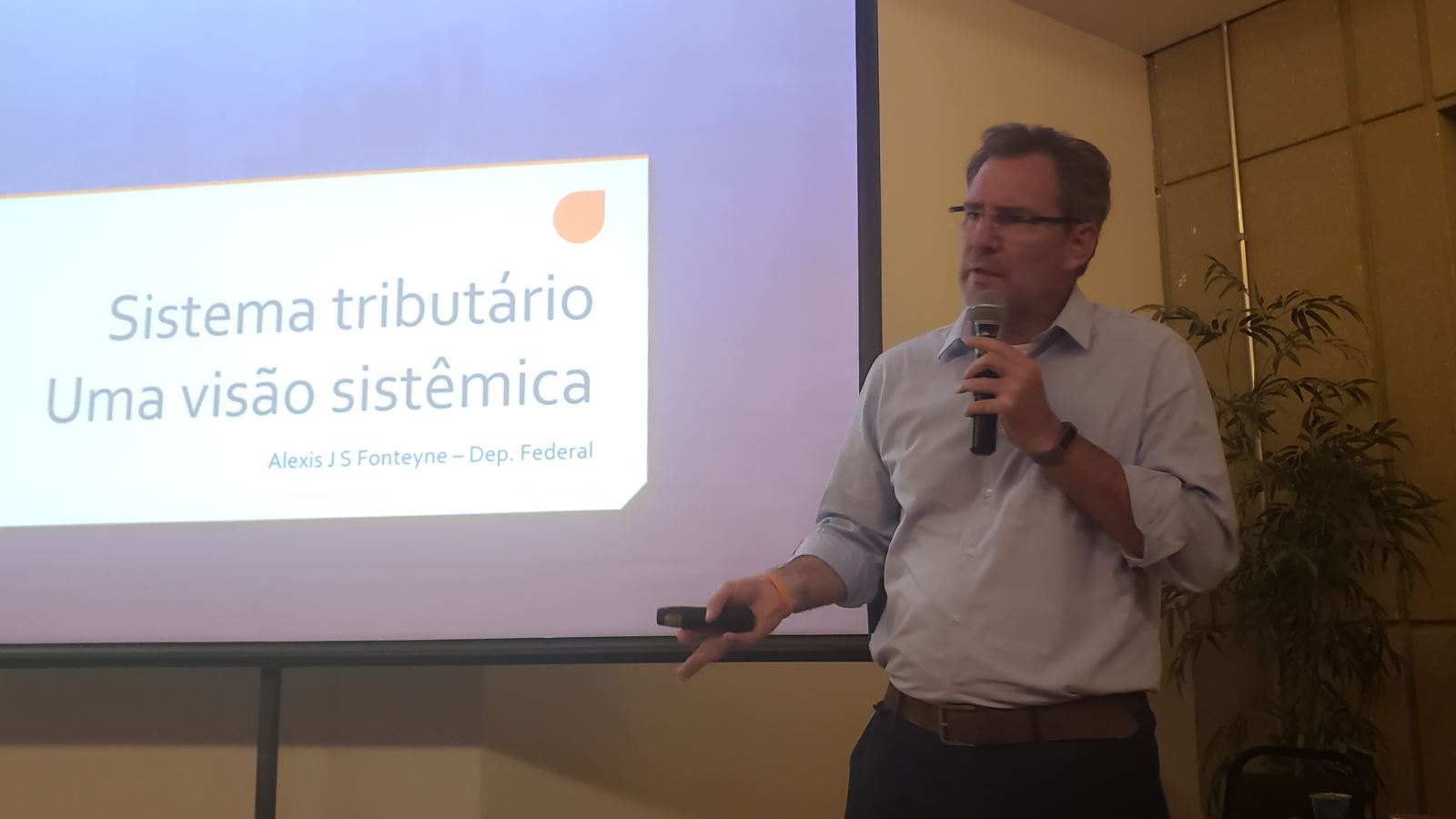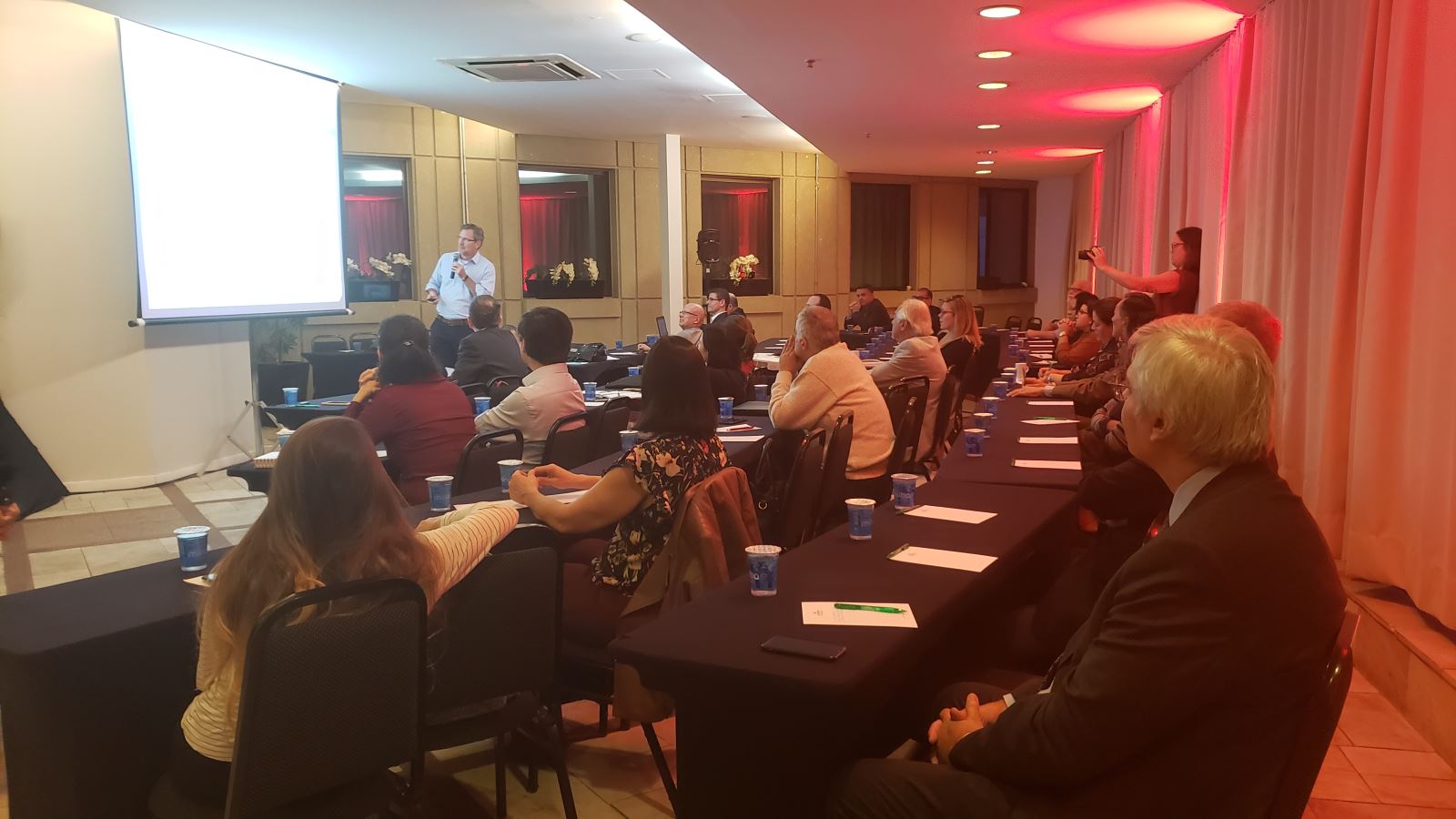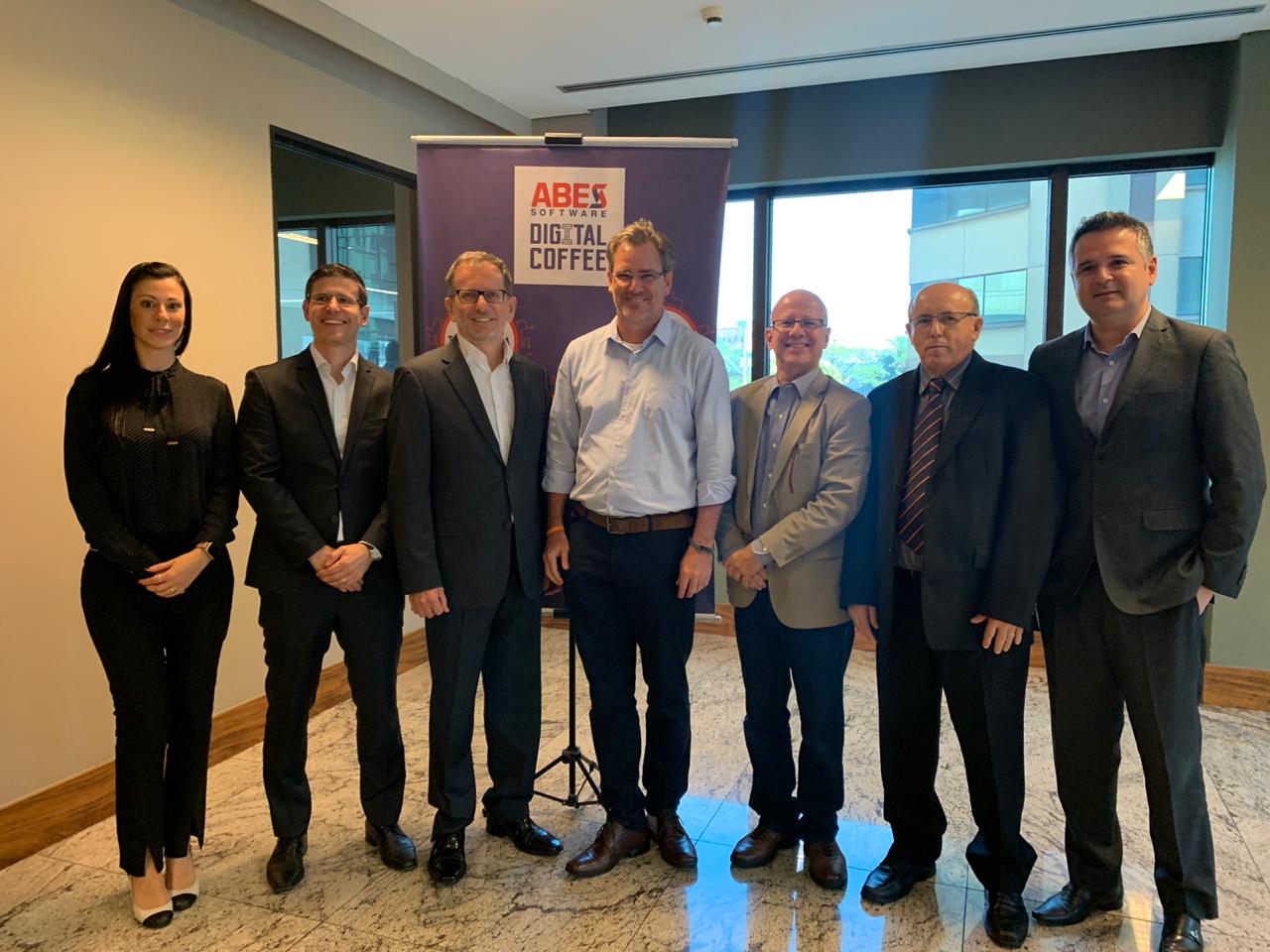This Monday (09/09), ABES promoted the 3rd edition of ABES DIGITAL COFFEE, a series of meetings organized with the participation of special guests to discuss Brazilian economic and political issues. The event was attended by the Federal Deputy Alexis Fonteyne (NOVO/SP) who spoke about Tax Reform.

Federal deputy Alexis Fonteyne (Novo/SP)
Welcomed by the association's president, Rodolfo Fücher, the congressman began his presentation from a global panorama regarding the countries that most tax income, consumption and properties and how Brazil is placed in these rankings. “In terms of the total tax burden, Brazil is in the world average, however it is one of the countries that charges the most on consumption, which impacts the poorest class, as 85% of the Brazilian population earns up to 5 minimum wages. So, we ask ourselves how the tax system can contribute to offering more social justice”, he pondered.
Fonteyne recalled that the complexity of the tax system is formed from the combination of different existing models and cited the ICMS calculation as one of the most confusing, followed by the PIS/Cofins calculation. In addition, he listed some “anomalies” of the Brazilian tax system and their consequences, among them: the creation of tax substitution, which generated a regime by product and by State; the tribute paid at origin and not at destination, which has stimulated the fiscal war; and the need for a Kandir Law to export, but that has not given results in practice.
As part of this scenario, he reported that approximately 66% of tax collection is in the hands of the federal government, used to cover expenses, investments, constitutional transfers to state and municipal entities and for parliamentary amendments. Subsequently, the states collect 28.4%, while 5.58% of the collection are the responsibility of the municipalities.

Participants closely follow the presentation
The proposal of PEC 45/2019
The deputy stressed that the tax system cannot be a constraint on growth and entrepreneurship. “The most serious problems in our system are the tax burden, which will depend on administrative reform to be reduced; the complexity and high cost in calculating taxes and the deadline for paying taxes, as many companies pay before receiving from their customers, allocating working capital for this purpose. These are problems that add cost, undermine competitiveness, generate disputes and reduce productivity”, highlighted the deputy.
Regarding the tax reform proposals being analyzed in the National Congress, Fonteyne considers that PEC 45/2019, authored by federal deputy Baleia Rossi, which proposes the merger of IPI, ICMS, ISS, PIS and Cofins into a single tax – the so-called Tax on Goods and Services (IBS) – is the one most likely to advance. “The goals of tax reform in Brazil should be simplicity, transparency, equity and neutrality. We aim to increase efficiency, reduce legal uncertainty and end various debates and interpretations that complexity generates”, he explained. The parliamentarian took a stand against the return of any type of tax on financial transactions, a tax that has been cited by the Ministry of Economy to improve collection.
After the presentation made by the parliamentarian, the legal director of ABES, Dr. Manoel Antonio dos Santos, made quick considerations about the tax matrix of the software sector in Brazil, which includes the taxation of revenue and profit, as well as the taxes due on remittances made abroad referring to the remuneration of license to use and commercialization of software. In addition, he directed several questions to Fonteyne and opened it for participants to ask questions of the guest.

Federal deputy Alexis Fonteyne (center) and the ABES team












